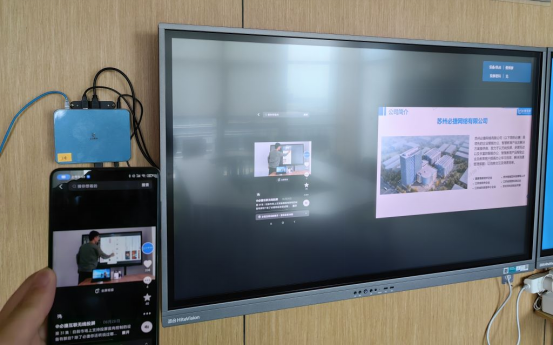Screen Projection – Simple Operation of Mobile Screen Projection Projector
With the continuous development of technology, projectors have become essential equipment in modern conference rooms and classrooms. In daily life, we often need to display the content on our phones to everyone, so we need to connect our phones to projectors. This article will introduce the methods and precautions for connecting mobile phones to projectors, helping everyone better connect their phones to projectors, improve work efficiency and display effects.
In modern business activities, presentations and videos have become very important ways of presentation. As a daily communication tool, mobile phones store a large amount of images, documents, and videos. If these contents can be directly transmitted to the projector, it can greatly improve the effectiveness and quality of the presentation.

In addition, connecting a projector to a mobile phone can also improve meeting efficiency. In traditional meetings, it is necessary to connect the computer to the projector, which not only requires a certain amount of time, but may also result in connection failure due to interface incompatibility or signal interference. Using a mobile phone to connect to a projector can save time connecting to a computer and avoid inconvenience caused by connection issues.
The method of connecting a projector with a mobile phone
- Connect using an adapter
(1)Prepare adapter
Firstly, it is necessary to prepare an adapter that can convert the phone interface into an HDMI interface, thereby enabling connection with the projector. At present, there are many brands and models of adapters available on the market, and you can choose the appropriate adapter based on your phone model and projector interface.
(2)Connection adapter
Insert one end of the adapter into the charging port of the phone and the other end into the HDMI port of the projector. At this point, the phone and projector will automatically connect and display a successful connection prompt.
(3)Start demonstration
Once the connection is successful, you can start the demonstration. Open the documents, images, or videos that need to be demonstrated on the mobile screen, and they can be displayed directly on the large screen.
- Using wireless connection
In addition to using an adapter to connect, wireless connections can also be used to connect the phone to the projector. This method does not require any cables and only requires the installation of corresponding software on the phone and projector to achieve connection. The specific operation method is as follows:
(1)Prepare wireless connection software
Download and install the corresponding wireless connection software on your phone, such as Bijie screen mirroring. This software can be downloaded from the official website of Bijie.
(2)Connecting wireless signals
Turn on the wireless function of your phone, search for and connect to the wireless signal emitted by the projector. At this point, the mobile phone and projector have established a wireless connection.
(3)Start demonstration
Once the connection is successful, you can start the demonstration. Open the documents, images, or videos that need to be demonstrated on your phone, and they can be displayed directly on the large screen. At the same time, the remote control function of the phone can also be used to control the playback progress and volume parameters of the projector.
Precautions for connecting a projector to a mobile phone
- Adapters and cables should be selected with appropriate models and brands to avoid issues such as incompatibility or signal interference;
- When using wireless connections, it is important to ensure that the phone and projector have established the correct wireless connection;
- During the demonstration, it is important to control parameters such as volume and lighting to ensure the effectiveness and quality of the presentation;
- During use, it is important to protect the projector and other equipment to avoid damage or malfunctions;
- After use, the equipment and power should be turned off in a timely manner to save energy and protect equipment safety.